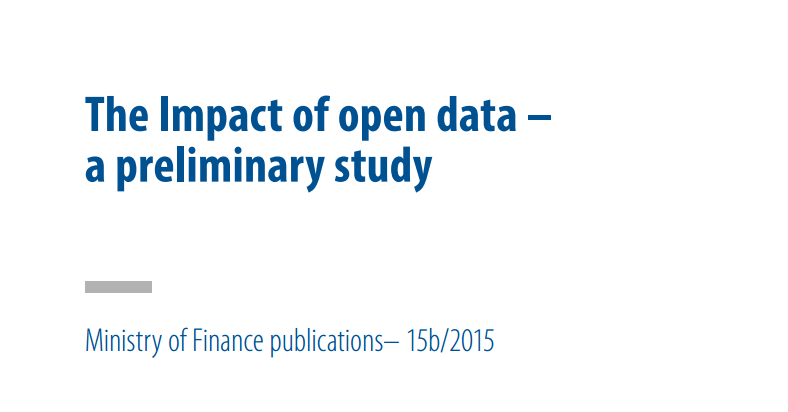Abstract
Various countries have implemented the open (government) data strategy aiming at providing wide access to government data in machine-readable format such that it can be freely used, reused and redistributed by anyone. Reported ex ante evaluations have estimated that the potential benefits of opening up public data resources are substantial.
Very little is known about the underlying economic and organizational mechanisms and implications of open data use at the organizational level or at the level of economy as a whole. To my best knowledge, there is no reported comprehensive country-level ex-post impact assessment of opening up government data.
Currently, Finland is among the leading countries in opening up the government data, and it has also a chance to be among the most advanced ones in the impact assessment of open data. The impacts of opening up government data can be divided to economic impacts and to other social impacts.
The prerequisite for this is a careful development of the monitoring and evaluation model for opening up government data as well as a systematic gathering of data for the impact assessment. Furthermore, the usability and usefulness of different public data resources for consumers, firms and public sector organizations can be assessed via the users’ own evaluations. In addition, it is important to assess appropriate means to disseminate and promote efficient utilization of information on the best practices of open data re-use in different organizations.


